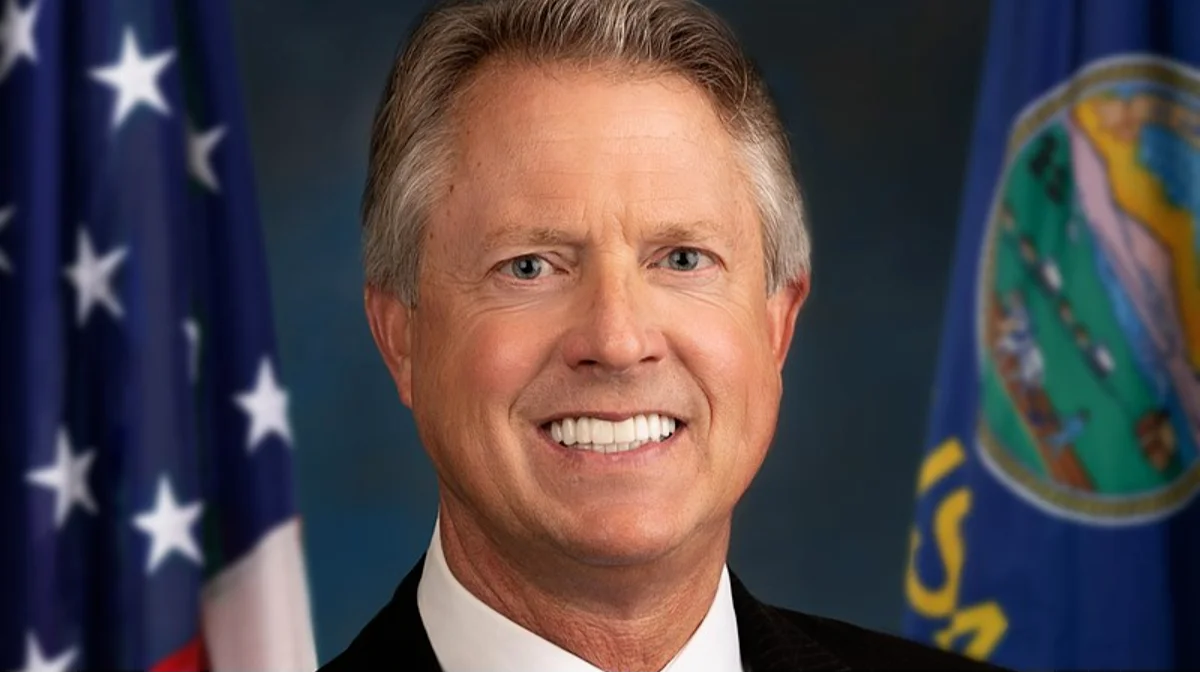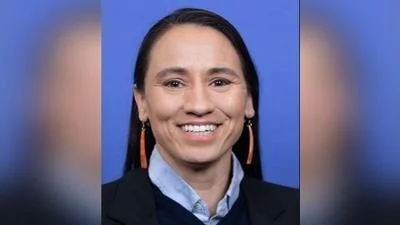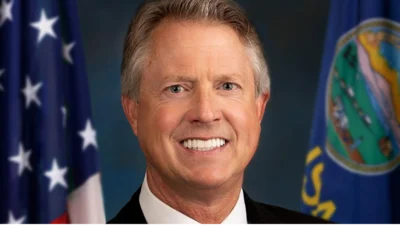Senator Roger Marshall, US Senator for Kansas | Official U.S. House headshot
Senator Roger Marshall, US Senator for Kansas | Official U.S. House headshot
U.S. Senator Roger Marshall (R-Kansas) appeared on NewsNation's The Hill to discuss the ongoing government shutdown, its impact on rural America and health care, and Republican policy proposals.
Marshall described the current impasse as a "political shutdown," attributing it to Senate Majority Leader Chuck Schumer responding to pressure from progressive members of his party. He stated, “Yeah. Lindsey, well, you know, I’m a doctor. I’m an OB doctor. I would love to give this legislation some Pitocin right now and get some get this legislation moving somewhere. But it’s not happening. And with all due respect, I think the reason why this is a political shutdown is that Chuck Schumer has responded to the far left, liberal side of his party, who have forced him to shut down. They forced him to take this hostage. You know, basically, they’re saying that they want us to extend these COVID subsidies for health care. Look, I’m very willing to talk about those subsidies, but not in the context of keeping the government open. I think these are two separate issues. And just remind the Democrats that in a similar situation with Joe Biden as president, they passed about $2 trillion of extra spending each year, and when it came for us to keep the government open, we did that without asking them to retract that money. So, I think that America is seeing through this, and they’re going to claim this as a Schumer shutdown.”
Marshall also raised concerns about fraud within health care subsidies established during the COVID-19 pandemic: “Yeah, so I think let’s be a little bit more specific. The COVID subsidies were meant to expire in five years. The real problem with these subsidies, though, is the fraud. They’ve grown from 50 to $150 billion a year. We think there’s $25 billion a year of fraud. We need to go back and figure out where that fraud is coming from. And then the real elephant in the room is the cost of health care. Those premiums are going to go up this year. Americans are paying 400% more for health care today than they were a couple of decades ago. So, let’s fall back. Let’s work on the true problems. That’s the cost of health care rather than just asking the government to pay more and more of the subsidy.”
Regarding federal jobs affected by the shutdown and congressional negotiations moving forward, Marshall said: “You know, I’m sure when we go back on the floor tomorrow we’ll talk with them some of those people... It’s pretty scarce right now... And again I think the real movement is just a commitment that Republicans will negotiate with them on these COVID subsidies for ACA legislation.”
He continued his criticism toward Democratic leadership: “This is a political Schumer shutdown that he is being threatened by AOC, the squad and the left... They forced him to take this hostage... now they’re asking him to shoot the hostage as well... Darn if he does darned if he doesn’t.”
On support for rural communities under former President Trump’s policies and future legislative priorities affecting agriculture exports and renewable fuels such as soy-based jet fuel tax credits (45Z), Marshall said: “Look 97% of rural counties voted for President Trump He’s not going to let them fail He’s got their back This is a short gap measure The good thing is from our One Big Beautiful Bill we passed legislation that’s going help with crop insurance and problems like this but it’s not going be impactful until next year So I think this is bridge future The other thing we can focus on that's President Trump priority is tax credit called 45Z which going help us take these soybeans turn them into jet fuel someday So there are other things we can do besides trade By way we're going have increased exports soybeans five or 10% over last year We had steady decline export farm income under Joe Biden but now we're on way back up”
According to recent agricultural data reported by the U.S Department of Agriculture, soybean exports have shown signs of recovery after previous declines during earlier years.
The interview comes amid ongoing debates over extending temporary pandemic-era health care provisions and efforts by lawmakers from both parties seeking resolution before broader impacts affect federal services or economic sectors.



 Alerts Sign-up
Alerts Sign-up